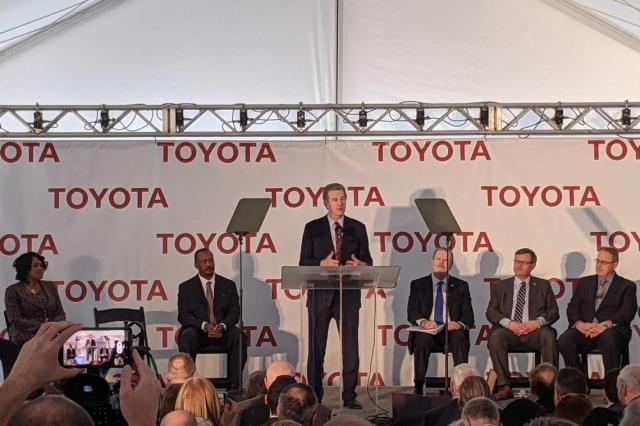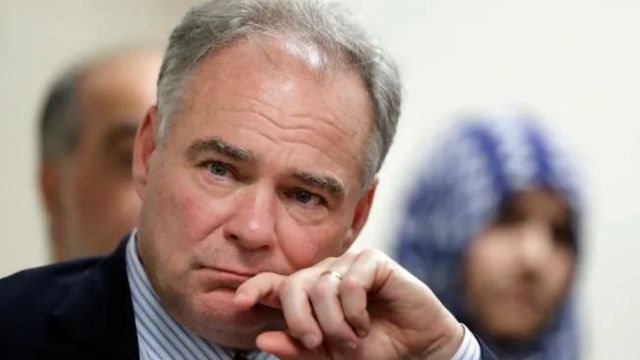This week, Gov. Roy Cooper is putting out the red carpet for Japanese Prime Minister Fumio Kishida as the state and country try to strengthen their economic ties. Toyota, Fujifilm, and a growing number of other job projects are examples of these links.
“The State is working to put its best foot forward for the visit,” Cooper’s office said on Tuesday, two days before Kishida is set to arrive at Raleigh-Durham International Airport. The Prime Minister will come in from Washington, D.C., where the White House is having a state dinner in honor of his trip to the United States.
Kishida will stay with Cooper in the Tar Heel State while he is there. Cooper is going to the White House dinner.
Cooper’s office said, “This will be the first time in history that a sitting head of state has visited North Carolina. It also shows how close the state is to Japan.”
Cooper and Kishida will take a tour of the huge Toyota battery plant being built outside of Greensboro on Friday. The Japanese company says the project will cost close to $14 billion and hire 5,000 people when it’s finished. Then, Cooper and Kishida are going to Guilford County to see the HondaJet facility that is growing. This facility got a $3.43 million state grant last summer to help it grow.
After seeing these places, Kishida will go back to Raleigh for a lunch at the North Carolina Executive Mansion. Ashley Christensen, a local cook who has won a James Beard Award, will make the menu, and Sam Jones BBQ in Raleigh will serve lunch to the rest of the Japanese delegation and the media. During lunch, the bluegrass band Unspoken Tradition from North Carolina will play.
At the same time, North Carolina’s first lady Kristin Cooper will go with Yuko Kishida to “a traditional Japanese tea at Sarah P. Duke Gardens in Durham,” according to Cooper’s office. After that, the two women will go to the North Carolina Museum of Science to see a Japanese Friendship Doll that has been there since the 1920s.
The governor signed an order on Tuesday making April 12 “North Carolina and Japan Friendship Day.”
How Japan Loves Making Things with North Carolina
There has been a connection between Japan and North Carolina since 1978, when North Carolina opened a business development office in Japan. Twenty years later, Japan was third in the world in terms of the number of companies in the state, after the UK and Germany.
This trend is still going strong. The Economic Development Partnership of North Carolina says that Japanese companies promised more than $6.6 billion and more than 5,100 jobs in North Carolina from 2018 to 2022. The Southeastern United States/Japan Economic Development Conference took place in Tokyo in October, and Cooper led a group of state officials there. The meeting this year will take place in Charlotte.
Most of the new jobs that Japan has announced recently are in industry.
Toyota said in 2021 that it was going to build a big plant to make batteries in Randolph County, south of Greensboro. Fujifilm Diosynth said it would open another factory in the Triangle area the following year. This would be in addition to its current plant in Morrisville and the new plant that will open in Holly Springs. The Japanese company Dai Nippon Printing promised to make 352 jobs at a new lithium-ion battery plant northeast of Charlotte in November. At the same time, the biotech company Kyowa Kirin said it would add 100 jobs to a new facility in Sanford.
“In the Manufacturing sector, operation costs and logistics costs are very important,” said Hiroyuki Akiyama, head of the Japan External Trade Organization office in Atlanta, in an email. “Most states in the Southeast have benefits like low taxes, good utilities, easy access to other states, and airports and seaports.” A lot of the states are in the top 10 for population growth, and some, like North Carolina, have highly educated workers and great places for startups to grow.
Akiyama said that the Infrastructure bill, the Inflation Reduction Act, and the CHIPS Act, all made by the Biden administration, have helped Japanese companies grow in the U.S. market. With a record-low birthrate, Japan may also encourage its own businesses to go global.
Akiyama said, “The size of Japan’s domestic market is expected to slowly shrink because the population is falling.” “Because of this, Japanese businesses tend to look for chances to grow their operations overseas so they can keep making money.”




